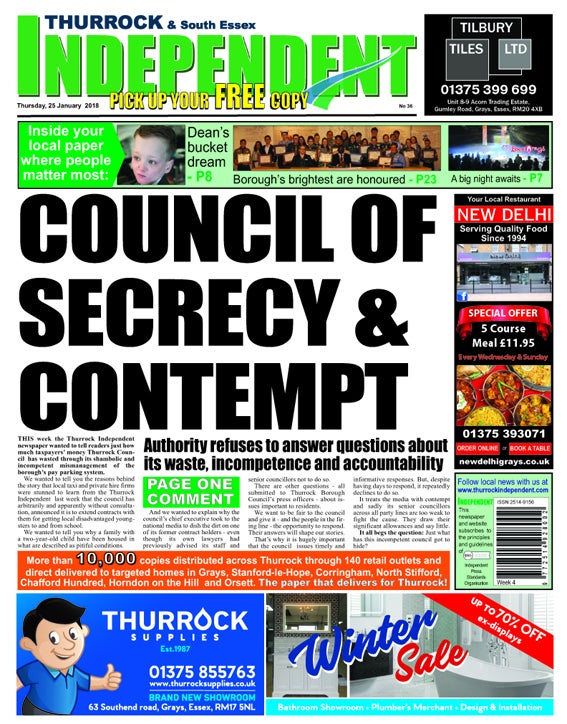
An editor who was forced to claim benefits when his newspaper became unsustainable and believed he would never work in the industry again has joined a burgeoning hyperlocal online news network.
Neil Speight (pictured) launched the free weekly Thurrock Independent newspaper in early 2017, with a print distribution of 22,000 alongside a free website.
During his time running the title, Speight was supported by the industry when he was temporarily blacklisted by the local council for being “vexatious and unreasonable”.
He also saw off two unsuccessful complaints by the authority to the Independent Press Standards Organisation.
Speight told Press Gazette it was a “genuinely much-loved” paper, but advertising revenue wasn’t high enough and he couldn’t find a salesperson who could commit to building it up.
He experimented with publishing the newspaper fortnightly and monthly, but was forced to admit defeat after building up “considerable” personal debt, taking the newsbrand online-only in May this year.
He subsequently went on to claim universal credit before finding work at an RAF social club and then in a warehouse and driving trucks.
Speight has kept Thurrock Independent going online on the side throughout, averaging around 2,000 unique visitors per day and making a small amount of ad revenue.
He is now merging the site into Nub News, a platform launched last year by a former City banker who wanted to “come up with a sustainable model – providing a low-cost news and features” while keeping up quality.
Admitting the “reality of digital media” caught up with him, Speight said: “Sadly, however you try and configure the model, the public appetite for print – and more importantly the commercial appetite for print – has diminished to the extent it is not viable to run a paper as a commercial enterprise and there are few altruists who are prepared to dig deep enough to sustain printing them over a period of time.
“Nevertheless, two things remain. There is a need for quality, vigilant journalism to hold public bodies to account – and there is a proven interest in local communities for local news. Put the two together and there is a clear opportunity.”
Speight, whose journalism career started at the South Yorkshire Times in the 1970s, added that Nub News is “going back to basics but rather than in print it’s online”.
He added:”I thought I’d never ever get back into full-time journalism but it’s like a bug once you’ve got it.”
Nub News now employs 11 journalists and has a presence in Cornwall, East Devon, South Wales, Somerset and Lincolnshire.
It will move into Leicestershire with a new hire next week, while co-founder Karl Hancock told Press Gazette he is also keen to launch in Cheshire. Speight said he hopes to make Thurrock the “bridgehead” for expanding coverage across the South East.
At its inception Nub News used to aggregate news content from existing local titles and sources such as local emergency services on Twitter and council press releases.
But now its journalists – who include veterans of the local news industry and recent university graduates – produce all of their own content with the exception of stories from the BBC Local Democracy Reporting Scheme.
Hancock revealed Nub News has recently received a second round of City investment meaning it has a “clear runway for growth over the next couple of years”.
He said: “We are at the beginning of a journey that will change the way local news is presented with authority and credibility and will secure everything that is positive about local journalism.”
Speight, a former Thurrock Gazette editor and Holderness Newspapers managing editor, said he was “really annoyed” to see cynicism from some journalists towards Nub News and Hancock’s City background.
“Why criticise someone who’s doing something positive in an industry that’s completely swamped with negativity?” he said.
Although he could not make Thurrock Independent sustainable, he said there are “instances where small newspapers and independent publishers can still make a go of it as long as the area is right first and foremost”.
“The newspaper has got to be good enough and has got to service the needs of advertisers. You’re not going to get rich over it, but I think you could still do it.
“It’s dying in terms of less and less people are picking up print but equally maybe it’s down because the product isn’t good enough.
“The industry has been run for years by accountants who slashed the quality and slashed the impact locally and if the content’s rubbish no-one’s going to pick it up and read it.”
Email pged@pressgazette.co.uk to point out mistakes, provide story tips or send in a letter for publication on our "Letters Page" blog


